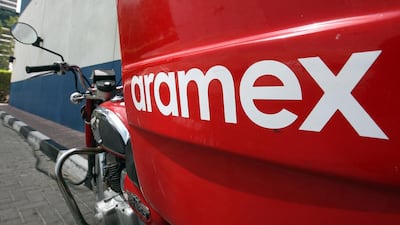Aramex plans to roll out a network of parcel lockers across the Middle East and North Africa to support the growth of e-commerce.
The logistics giant yesterday said that it had formed a joint venture with Poland’s InPost, which has a parcel locker network across 17 countries worldwide, to establish a parcel network in the Mena region.
The locker network will operate in a similar way to international services such as Amazon Locker and those offered by national postal services in Australia, the US and elsewhere.
The first lockers are scheduled to become active by the end of this year. Aramex did not comment on which countries the service will be rolled out in first, nor on which locations would be used.
The agreement between Aramex and InPost comes on the back of growth in e-commerce services across the Mena region. Online spending in the region is forecast to grow to US$15 billion in 2015 from $9bn in 2012, according to a survey from PayPal and Ipsos last September.
“InPost have a long and highly successful track record in developing world-class products and services in Europe and Asia and we are delighted to now be partnering with them across the Middle East and Africa,” said Iyad Kamal, Aramex’s chief operating officer.
“Across our markets in the Middle East and Africa, we are seeing the rapid growth of the e-commerce industry and our new partnership with InPost will enable us to continue to capitalise on this trend by strengthening our e-commerce services,” Mr Kamal added.
E-commerce in the Middle East is dominated by the UAE, where online consumer spending reached $2.9bn in 2012, according to the PayPal-Ipsos study. This figure is forecast to grow to more than $5.1bn in 2015, according to estimates from Ekos Global.
“Aramex has deep local knowledge of the Middle East and Africa in particular and is a very natural partner for our growth strategy,” said Rafal Brzoska, InPost’s chief executive.
“Having already established an extensive global network, we are excited about the considerable opportunities across the e-commerce sector in the Middle East and Africa and proud to be introducing parcel lockers for the first time to the region.”
jeverington@thenational.ae
Follow us on Twitter @Ind_Insights

